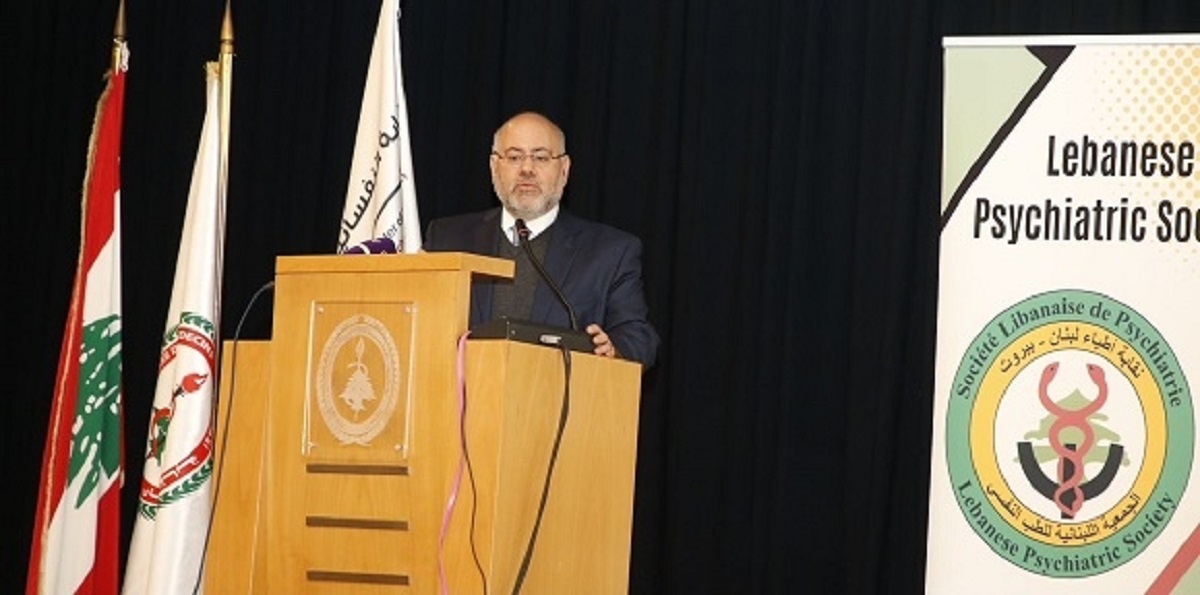
Mental health insurance in Lebanon falls short amid soaring needs, with local data highlighting the severe impact of the country’s economic, political, and health crises on the populace’s mental well-being.
Over the past three years, the COVID-19 pandemic, worsening economic conditions, and the trauma from the Beirut blast have dramatically increased the demand for mental health support.
This has made incorporating mental healthcare services into Lebanon’s primary healthcare system essential, highlighting the need to ensure that general physicians and nurses are equipped with training on prevalent mental illnesses, including detection methods and treatments. This could help make mental health services widely accessible to those in need, enabling individuals to receive appropriate treatment even before consulting a mental health specialist and at minimal expense.
NOW has reached out to Sandra Arbid, a Beirut-based psychologist who partners with organizations like UNICEF to increase access to mental healthcare and promote awareness of mental health resources among vulnerable populations throughout various regions of Lebanon. Arbid told NOW: “The crisis in Lebanon has led to widespread mental health problems as people struggle to cope with severe stress, trauma, and depression. The economic difficulties faced by many now make it extremely challenging to access vital resources like food, water, and medical supplies. These immense challenges can be overwhelming, creating feelings of fatigue, humiliation, and powerlessness.”
In certain communities with rigid religious beliefs and entrenched norms and values, seeking help is not readily accessible for many individuals. Arbid suggests that this hesitation stems from the fear of stigma and societal labels that might be imposed on them by their surroundings if they were to seek assistance. “Many of my patients report hearing phrases such as ‘You’re exaggerating,’ ‘Stop making excuses,’ ‘Why are you so lazy,’ and ‘Why are you always depressed?’ from the people around them,” Arbid shared with NOW.
The significance of offering no-cost psychosocial and psychological support programs, along with awareness-raising sessions at the community level, cannot be overstated. These initiatives can be facilitated by NGOs and international organizations, particularly in Lebanon. Insurance companies in Lebanon are part of the problem, they have been addressed repeatedly by the Lebanese psychiatrist society, by clinicians, and by patients as they completely ignore the role of a psychiatrist in healthcare.
In an interview with NOW, Dr. Joseph Khoury, President of the Lebanese Psychiatric Society and founder of a mental health clinic, shared more details on the situation of mental health care and support in Lebanon. “Insurance companies in Lebanon even before the crisis did not cover mental health care unless an individual had international insurance,” Khoury explained. “Now, I would say probably 90 percent is paid out of pocket because the Ministry of Health has changed the way it supports psychiatrist care, otherwise people have to rely on NGOs as they have taken a big chunk of this and charge a very low fee or sometimes free, or some organizations that look after refugees also provide internationally funded aid for the Lebanese,” Khoury added. According to Khoury, mental health is now a priority for the government, yet there is no dedicated budget for it specifically; the government relies a lot on foreign aid to be able to provide the minimum requirement.
Unemployment and shortages of basic necessities have left thousands struggling with mental health issues while thousands of health workers have left the country for better opportunities abroad, making therapy increasingly expensive. “In regards to statistics, it is important to remember that in Lebanon we probably do not have more than 50 psychiatrists working on a full-time basis in the country and providing regular clinical care,” Khoury noted. “Many people have left the country, many have recently graduated and are not yet well-established, and some are travelling back and forth, which all has a very impact on psychiatrist care,” Khoury told NOW. At the same time, the number of registered psychologists is under 1000 for the whole country, and psychologists cannot take on a very big caseload, he explained.
Data from Lebanon shows severe levels of distress among the people, in a country with minimal resources. According to the recent data from the Gallup Global Emotions Report (2022), painful emotions, such as anger and sadness, have soared (nearly three in four people (74%) among the Lebanese community members in general). At least half of the people in Lebanon claim to have experienced a lot of sadness (56%) and anger (49%) as well.
In numerous regions of Lebanon, access to psychological or psychiatric care is severely limited, requiring many individuals to travel for over an hour to reach a psychiatrist, especially in areas like Northern Bekaa or Akkar. NGOs have significantly addressed a considerable void, playing a crucial role in mitigating the crisis. However, their operations heavily rely on foreign aid and donor priorities, which may not always align with the needs of the Lebanese population due to the absence of a national strategy.
Lebanese citizens have experienced a dramatic surge in medication prices since they are no longer subsidized, resulting in highly unpredictable costs. Consultation fees for psychiatric and psychological care have also escalated, ranging from $50 to $150, varying based on factors such as location and the qualifications of the doctor, according to Khoury.
Eager to make changes in her life, Nour Abdallah, who is now a single mother of three and lives in the Bekaa region, had reached out to Himaya to seek help for herself and her children after being verbally and physically abused by her ex-husband. “I did not know that such services existed in Lebanon, my friend told me to reach out to their office in Bekaa and seek help to offer the needed support for my abused children on the psychological level, as they were eventually becoming disintegrated from society, falling back at school and suffering from different mental health issues,” said Abdallah. “In many regions, particularly in villages, we lack this culture of seeking mental health support as many are ashamed and fear the stigma from society. However, it is important to learn and practice the coping mechanisms that an individual should use when suffering mentally,” Abdallah told NOW.
A comprehensive look at the mental health landscape in Lebanon underscores the pressing need for improved access to care, broader awareness, and systemic support to address the complex challenges facing individuals across the nation, emphasizing the critical role of both local and international efforts in fostering a more supportive and understanding environment for mental health.
Rodayna Raydan is a Lebanese-British journalist. You can follow her on Twitter @Rodayna_462
The views in this story reflect those of the author alone and do not necessarily reflect the beliefs of NOW.








